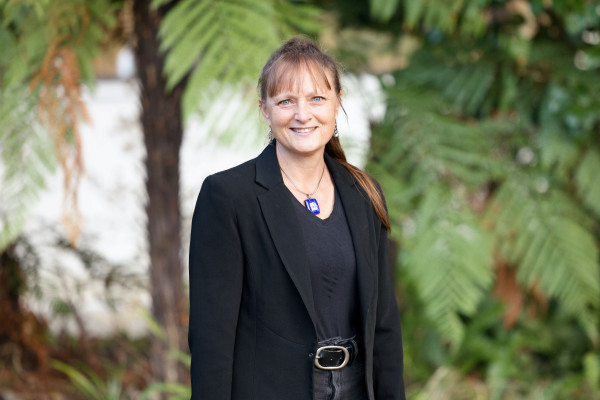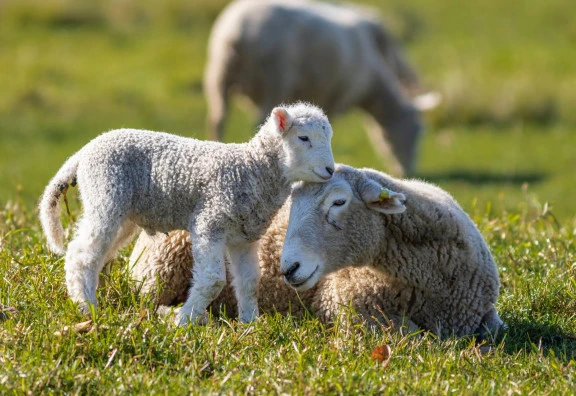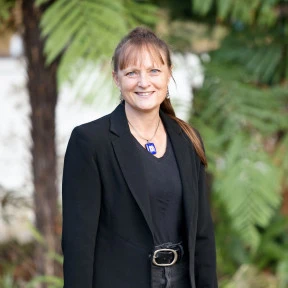Through this systems-level approach, the project aims to strengthen New Zealand’s sheep sector and uphold our reputation for ethical, high-value farming.
The trial involves 456 pregnant ewes from a commercial flock. Two key environmental stressors are being studied, that represent natural challenges on commercial sheep farms – the plane of nutrition for the ewe, and number of lambs carried.
Researchers will monitor a wide range of production traits — including lamb survival, body condition, growth, and health — alongside detailed metabolic , immune and behavioural parameters. After tailing, ewe lambs will continue to be tracked through summer, with their reproductive success as hoggets and 2-tooths also assessed in subsequent breeding seasons.
By harnessing cutting-edge immune and metabolic profiling alongside GPS-enabled behaviour monitoring, this trial reveals how early-life stress shapes ewe and lamb health,” says Dr McCoard. “Our systems-level approach could revolutionise ewe management across New Zealand farms.
“This research could pave the way for reduced ewe and lamb mortality and morbidity, and more resilient sheep across New Zealand’s sheep industry.
“We’re working closely with farmers and industry partners to ensure the findings from this research are practical and quickly adopted,” says Dr McCoard. “The goal is to deliver real-world benefits, healthier animals, better returns, and more sustainable farming systems.”
“This work has the potential to support Māori agribusinesses with land management strategies that align with tikanga-based farming approaches,” says Dr McCoard. “It’s about long-term resilience across the four pillars – economic, environment, social and cultural”`
Every one percent reduction in ewe mortality can save the industry NZ$17–20 million annually, while modest improvements in lamb survival stand to boost farm profitability by over 30 percent. By reducing replacement costs, increasing saleable lamb numbers, and lowering veterinary and chemical inputs, this Bioeconomy Science Institute investment promises significant returns for farmers and the wider economy.
|
Sheep Resilience Trial – Key Facts
|
|
Purpose: Investigating how stress during late pregnancy and early lactation affects lamb survival, health, and long-term productivity.
|
|
Focus: Understanding and programming immunometabolism - the link between immune and metabolic systems - in both ewes and lambs.
|
|
Hypothesis: stress during the transition period (6 weeks pre- and 4 weeks post-lambing) negatively impacts:
- Short-term lamb survival and health
- Long-term resilience and production efficiency in offspring
|
|
Challenge: An average of 15-20% lamb mortality and up to10% ewe mortality in NZ’s extensive pastoral systems, despite best practices.
|
|
Innovation: Using cutting-edge science, from novel immune and metabolic profiling to GPS collars to understand how early-life stress influences dam and offspring health and performance. This approach could transform how we manage ewes in NZ’s farming systems.
|
|
Broader Impact:
- Supports NZ’s carbon neutrality goals
- Contributes to global models for ethical and resilient livestock farming
|


